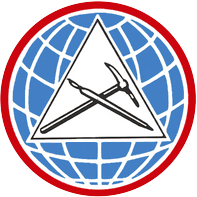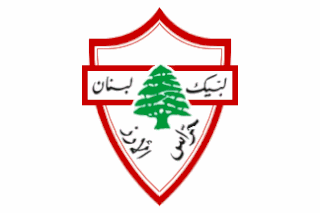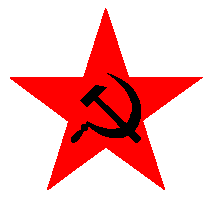
Fatah, formally the Palestinian National Liberation Movement, is a Palestinian nationalist and social democratic political party. It is the largest faction of the confederated multi-party Palestine Liberation Organization (PLO) and the second-largest party in the Palestinian Legislative Council (PLC). Mahmoud Abbas, the President of the Palestinian Authority, is the chairman of Fatah.

The Progressive Socialist Party is a Lebanese political party. Its confessional base is in the Druze sect and its regional base is in Mount Lebanon Governorate, especially the Chouf District. Founded by Kamal Jumblatt in 1949, the party was led by his son Walid Jumblatt between 1977 and 25 May 2023. On 25 June 2023 the son of Walid, Taymur Jumblatt, was officially consecrated as leader of the PSP.

The Kataeb Party, officially the Kataeb Party – Lebanese Social Democratic Party, also known as the Phalangist Party, is a right-wing Christian political party in Lebanon founded by Pierre Gemayel in 1936. The party and its paramilitary wings played a major role in the Lebanese Civil War (1975–1990), opposing Palestinian insurgency in South Lebanon as well as collaborating with Israel. During the 1982 war, Phalangist militiamen committed the infamous Sabra and Shatilla massacre with support from the IDF. The Phalangists were also responsible for the Black Saturday massacre, the Tel al-Zaatar massacre, Ehden massacre, and the Karantina massacre, some of the worst massacres committed during the Lebanese Civil War. In 1982, Pierre's youngest son Bachir, the leader of the party's militia, was elected President, but was assassinated before he could take office. He was succeeded by his older brother Amine, who led the party through much of the war. In decline in the late 1980s and 1990s, the party slowly re-emerged in the early 2000s and is currently part of the Lebanese opposition. The party currently holds 4 out of the 128 seats in the Lebanese Parliament.

The Lebanese Civil War was a multifaceted armed conflict that took place from 1975 to 1990. It resulted in an estimated 150,000 fatalities and led to the exodus of almost one million people from Lebanon.

The Guardians of the Cedars was a far-right ultranationalist Lebanese party and former militia in Lebanon. It was formed by Étienne Saqr and others along with the Lebanese Renewal Party in the early 1970s. It operated in the Lebanese Civil War under the slogan: Lebanon, at your service. The militia was explicitly anti-Palestinian, and gained a reputation for brutality against Palestinian fighters and civilians.
The Lebanese National Movement was a front of Leftist, pan-Arabist and Syrian nationalist parties and organizations active during the early years of the Lebanese Civil War, which supported the Palestine Liberation Organization (PLO). It was headed by Kamal Jumblatt, a prominent Druze leader of the Progressive Socialist Party (PSP). The Vice-President was Inaam Raad, leader of the Syrian Social Nationalist Party and Assem Qanso of the pro-Syrian Lebanese Arab Socialist Ba'ath Party. The general secretary of the LNM was Mohsen Ibrahim, leader of the Communist Action Organization in Lebanon (CAOL).

The Amal Movement is a Lebanese political party and former militia affiliated mainly with the Shia community of Lebanon. It was founded by Musa al-Sadr and Hussein el-Husseini in 1974 as the "Movement of the Deprived." The party has been led by Nabih Berri since 1980. The Greek Catholic Archbishop of Beirut, Grégoire Haddad, as well as Mostafa Chamran, were among the founders of the movement.
The War of the Camps, was a subconflict within the 1984–1990 phase of the Lebanese Civil War, in which the Palestinian refugee camps in Beirut were besieged by the Shia Amal militia.

The Lebanese Forces is a Lebanese Christian-based political party and former militia during the Lebanese Civil War. It currently holds 19 of the 128 seats in Lebanon's parliament, being the largest party of the country.

The Independent Nasserite Movement – INM (Arabic: حركة الناصريين المستقلين-المرابطون, romanized: Harakat al-Nasiriyin al-Mustaqillin) or simply Al-Murabitoun (المرابطون lit. The Steadfast), also termed variously Independent Nasserite Organization (INO) or Movement of Independent Nasserists (MIN), is a Nasserist political party in Lebanon.

The Communist Action Organization in Lebanon – CAOL (Arabic: منظمة العمل الشيوعي في لبنان | munaẓẓamah al-‘amal al-shuyū‘ī fī lubnān), also known as Organization of Communist Action in Lebanon (OCAL), is Marxist-Leninist political party and former militia in Lebanon.

The Popular Nasserist Organization – PNO is a Sidon-based Nasserist party originally formed in 1973 by Maarouf Saad, a Sunni Muslim pan-Arab politician and member of Parliament (MP) later killed by the Lebanese Army during a February 1975 dock strike held in that port city.

The Kurdish Democratic Party in Lebanon, is the Lebanese branch of a namesake Iraqi-based Kurdish nationalist party, established by Jamil Mihhu in 1960, and based in Lebanon. However, it was not licensed until 24 September 1970.

Bachir Pierre Gemayel was a Lebanese militia commander who led the Lebanese Forces, the military wing of the Kataeb Party, in the Lebanese Civil War and was elected President of Lebanon in 1982.
The Sixth of February Movement or '6th FM' was a small, predominantly Sunni Nasserist political party and militia active in Lebanon from the early 1970s to the mid-1980s.

The Battle of the Hotels was a subconflict within the 1975–77 phase of the Lebanese Civil War that occurred in the Minet-el-Hosn hotel district of downtown Beirut. This area was one of the first major battles of the war that began in April 1975. The battle was fought for the possession of a small hotel complex, the St. Charles City Center, adjacent to the gilded Corniche seafront area on the Mediterranean, in the north-western corner of the downtown district of Beirut, and it quickly spread to other areas of central Beirut. The often fierce battles that ensued were fought with heavy exchanges of rocket and artillery fire from the various hotel rooftops and rooms. Sniper fire was commonly utilized.

The Popular Guard or Popular Guards – PG was the military wing of the Lebanese Communist Party (LCP), which fought in the 1975–1977 phase of the Lebanese Civil War and subsequent conflicts. The LCP and its militia were members of the Lebanese National Movement (LNM) and its successor, the Lebanese National Resistance Front (LNRF).

The Lebanese Resistance Regiments (Arabic: أفواج المقاومة اللبنانية, romanized: ʾAfwāj al-Muqāwama al-Lubnāniyya, or أَمَل AMAL), also designated Lebanese Resistance Battalions, Lebanese Resistance Detachments, Lebanese Resistance Legions and Battalions de la Resistance Libanaise (BRL), but simply known by its Arabic acronym أَمَل ʾAmal which means "Hope", were the military wing of the Amal Movement, a political organization representing the Muslim Shia community of Lebanon. The movement's political wing was officially founded in February 1973 from a previous organization bearing the same name and its military wing was formed in January 1975. The Amal militia was a major player in the Lebanese Civil War from 1975 to 1991. The militia has now been disarmed, though the movement itself, now known as the Amal Movement (Arabic: Harakat Amal), is a notable Shia political party in Lebanon alongside Hezbollah.

The Syrian Social Nationalist Party in Lebanon (SSNP-L) is a Syrian nationalist party operating in Lebanon. The Lebanese section of the Syrian Social Nationalist Party advocates subsuming Lebanon into a Greater Syrian nation state spanning the Fertile Crescent.
The Union of Working People's Forces – Corrective Movement or UWPF-CM, also designated variously as the Nasserite Correctionist Movement – NCM and the Nasserite Socialists, was a Nasserist political party in Lebanon, which was active during the Lebanese Civil War (1975–1990).














